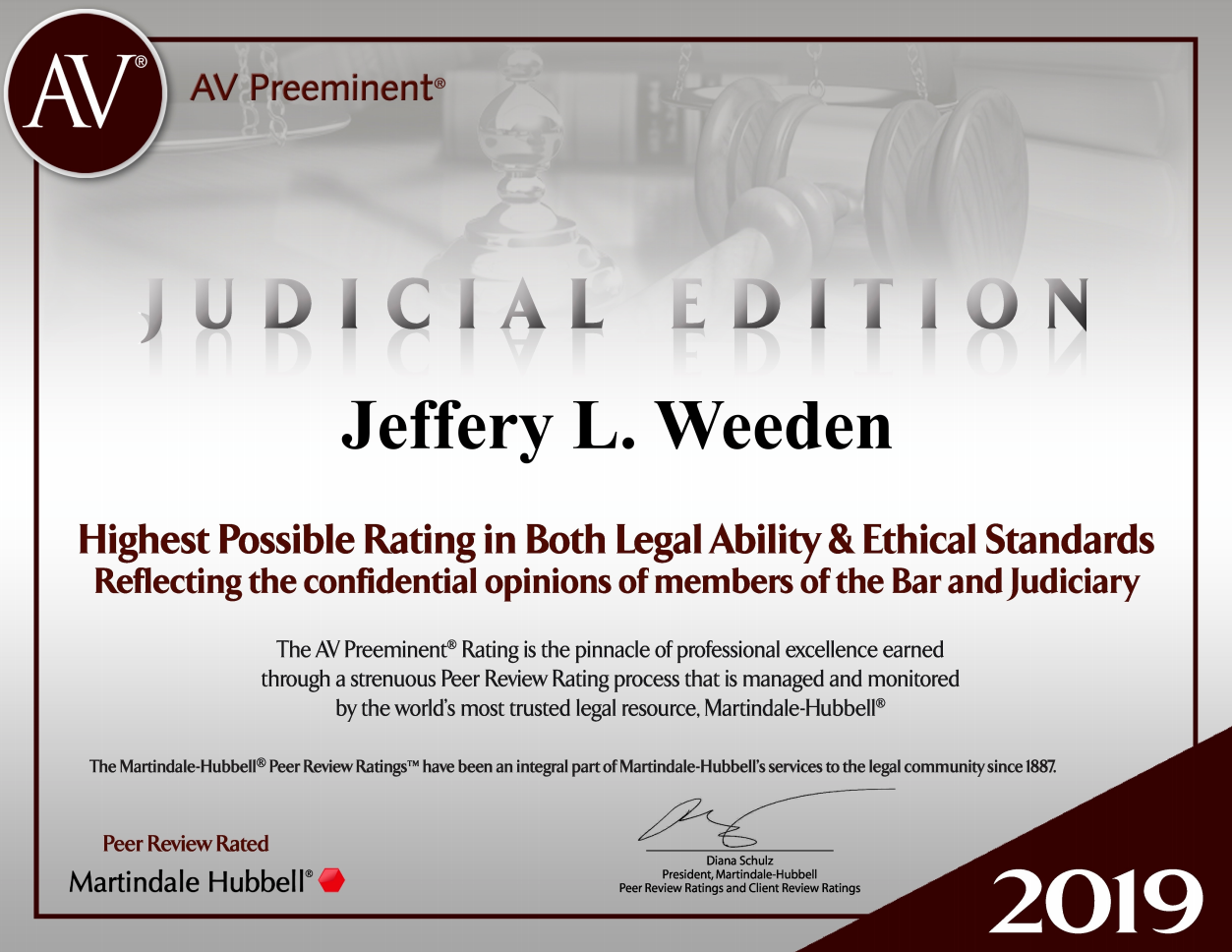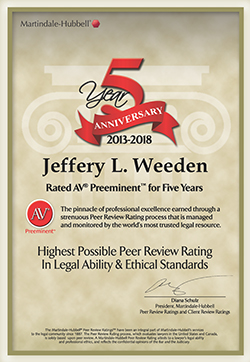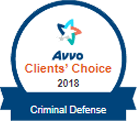Denver Criminal Defense Lawyer for Drug Charges

Over the last several years, our state has made a number of changes to the way drug crimes are charged and prosecuted. The most publicized one, of course, is the legalization of recreational marijuana. That, however, is just the tip of the iceberg. In 2013, a new law reduced penalties for all drug crimes and altered the way they are handled by the criminal justice system. In many ways, these changes are good things. They represent a move toward greater individual freedom and recovery over penalization.
Unfortunately, they also tend to confuse most people. At WeedenLaw, it is not uncommon for us to meet people who are facing drug charges but do not really understand why or what exactly the charges mean. This is where we come in.
The knowledgeable Denver drug crime attorneys at WeedenLaw know the law and what it takes to get drug charges reduced, dropped, or dismissed like the back of their hand. Our professional, caring staff members are also able to help if you are dealing with an addiction by directing you to local substance abuse and addiction resources.
What are Drug Crimes?
Drug crimes are precisely what they sound like — crimes that involve an illegal substance of some kind. An illegal substance may be anything from marijuana to prescription medication to heroin or methamphetamine. Many forms of drug offenses are covered by federal and state legislation. State drug regulations can be stricter if they don’t contradict federal drug laws. Drug charges in federal court generally result in lengthier terms than in state court, but a drug crime at either the state or federal level both still have the potential to pose long-term consequences on someone’s personal and professional life.
Types of Drug Crimes
- Simple possession charges in Colorado – According to C.R.S. § 18‑18‑403.5, knowingly possessing any controlled substance is prohibited.
- Possession with intent to distribute charges in Colorado – C.R.S. § 18‑18‑405 makes it illegal to manufacture, dispense, sell, distribute, or possess with intent to do so.
- Drug manufacturing charges in Colorado – C.R.S. § 18‑18‑405-406 includes manufacturing any controlled substance as a felony.
- Drug trafficking charges in Colorado -There isn’t a separate statute titled “trafficking.” Instead, much depends on the severity and quantity under § 18‑18‑405 (sale/manufacture/intent to distribute)
- Drug distribution charges in Colorado – Also covered under C.R.S. § 18‑18‑405, which prohibits dispensing, selling, distributing, or possessing with intent to distribute.
- Drug paraphernalia charges in Colorado – Under C.R.S. § 18‑18‑426, using or possessing items designed for use with illegal substances is prohibited.
Colorado Marijuana Regulations
One of the big confusions – largely prompted by the legalization of marijuana – is that many Coloradans are now confused about what is and is not legal in the state, and how various drugs are penalized. A Denver drug crime lawyer knows the ins and outs of the laws regarding marijuana use.
Here are the basics of what you need to know:
- You may possess marijuana for personal use if:
- You are 21 or older; and
- The amount is 28 grams (1 ounce) or less; or
- You have a valid medical marijuana prescription.
- You may not consume or use marijuana in public.
- It is generally legal to give or share 1 ounce or less or marijuana with someone else who is also legally permitted to use it.
- You are legally allowed to grow and cultivate six plants or fewer for personal use. However, only three may be mature at a time, and there are special rules about where and how they can be grown.
- If you use marijuana and drive, you can potentially get a DUID or marijuana DWAI in Colorado. (See our blog: What’s the Difference Between a DUI, DUID, and a DWAI.)
- Colorado’s open container law applies to marijuana, so if you’re traveling, keep it in the trunk, glove compartment, or in a sealed retail bag.
- You cannot use marijuana on any federal land in Colorado.
- It is also important to keep in mind that there are different rules for different types of marijuana.
What are Controlled Substances?
Aside from the regulations surrounding marijuana use in Colorado, other controlled substances that can lead to criminal punishment include:
Schedule V Drugs
Generally considered the “least serious” of controlled substances, Schedule V drugs include over-the-counter cold and cough medicines with codeine. They have been rated as having accepted medical use, but still possess a potential for abuse.
Schedule IV Drugs
These drugs are used medically but have a higher potential for abuse and psychological dependence. They include substances such as Ambien, Valium, and other prescription drugs.
Schedule III Drugs
Drugs under this schedule have accepted medical uses but have also been found to lead to moderate physical dependence and high psychological dependence. They include anabolic steroids, barbiturates, codeine, and ketamine.
Schedule II Drugs
Some of these substances provide a medical use, but all typically result in high levels of both physical and psychological dependence. Schedule II drugs include cocaine, methamphetamines, and prescription opioid pain pills.
Schedule I Drugs
Drugs listed here generally have no accepted medical uses and possess a high potential for abuse and dependence. Examples include heroin, LSD, magic mushrooms, mescaline, PCP, and peyote.
What is Considered a Serious Drug Offense?
When it comes to personal use, Colorado drug laws encourage treatment over incarceration — at least initially for drug possession offenses. As a result, drug possession and use charges are typically classified as misdemeanors. When it comes to more than four grams of Schedule I or II narcotics, or any amount of GHB, Ketamine, or flunitrazepam, however, these charges can increase to a felony. In addition, any drug offense involving the manufacturing or distribution (sale) of drugs is also generally a felony.
The term serious drug offense, defined by the Controlled Substances Act (21 U.S.C. 801 et seq.), requires the manufacturing or distribution (or possession with intent to distribute) of a controlled substance that results in a prison sentence of ten or more years.
Colorado law recognizes seven distinct categories of drug crimes: four levels of felonies, two levels of misdemeanors, and one petty offense. Level 1 drug felonies are the most serious and require the selling and distribution of dangerous drugs.
Level 1 drug felonies include selling more than:
- 225 grams of a controlled substance listed in Schedule I or Schedule II
- 112 grams of methamphetamine, ketamine, heroin, or cathinone
- 50 milligrams of flunitrazepam
- 2 ½ pounds of marijuana or more than one pound of marijuana concentrate to a minor if the defendant is an adult and two or more years older than the minor
- 50 pounds of marijuana or more than 25 pounds of marijuana concentrate
Penalties for Drug Crimes in Colorado
Having a drug conviction on your record, regardless of the sort of drug crime committed, can have serious implications. As we mentioned before, when it comes to personal use, Colorado drug laws promote treatment over imprisonment. An experienced drug crime lawyer can help you get the treatment you need while also fighting your potential incarceration. There are a variety of alternatives to jail time, including specialist drug courts, Veterans Treatment Courts, mental health counseling, and deferred sentencing for those who plead guilty to drug offenses in the state.
In general, the elements that impact the severity of the charges—and thus, your penalties—include the types of drugs involved, the amount of drugs, and your prior criminal record.
Taking all of these factors into consideration, you may find yourself facing one of seven drug charges recognized by our state. Here is how they break down:
Petty Drug Offense
Penalties include a maximum fine of $100 and the potential for up to 24 hours of community service.
Level 2 Drug Misdemeanor
Penalties include up to 12 months incarceration and up to $750 in fines.
Level 1 Drug Misdemeanor
Penalties include 6 – 18 months incarceration and up to $5,000 in fines.
Level 4 Drug Felony
Penalties include 6 months – 2 years of incarceration, one year of mandatory parole, and up to $100,000 in fines.
Level 3 Drug Felony
Penalties include 2 – 6 years of incarceration, one year of mandatory parole, and up to $500,000 in fines.
Level 2 Drug Felony
Penalties include 4 – 16 years of incarceration, two years of mandatory parole, and up to $750,000 in fines.
Level 1 Drug Felony
Penalties include 8 – 32 years of incarceration, three years of mandatory parole, and up to $1,000,000 in fines.
Note that certain drug crimes may be considered “wobblers”, meaning they can be either felonies or misdemeanors.
Does Having Drugs in Your System Count as Possession?
No, having drugs in your system does not count as possession.
How Can I Fight Drug Charges?
The first and possibly most important aspect to fighting drug charges is to know your rights. Under the Fourth Amendment of the Constitution, you are protected from illegal searches and seizures. This means law enforcement officers must have probable cause or your own consent to search you; without either of these elements, anything they obtained is inadmissible.
Calling an experienced Colorado drug crime attorney offers you your best chance at successfully fighting the charges you are up against. Your attorney can help inform you of the aforementioned rights, as well as protect them and ensure the police are not infringing upon them. Further, they can help in building a strong defense for you.
There are a number of possible defenses to drug charges in Colorado. These include proving that you never actually had control over the drugs, that law enforcement conducted an illegal search, or that you were entrapped by the authorities, among other things. Your defense attorney can help you select the best defense for your unique case.
Can I Have My Drug Possession Arrest Record Expunged in Colorado?
If you have a juvenile record, almost anything can be expunged, including arrest records, court records, and even convictions. In Colorado, there is less leeway when it comes to adult offenses. A record can be sealed if an adult is arrested but not prosecuted. However, things become more difficult once you go over that broad threshold. Most minor and municipal infractions are usually sealed by the courts, although this is not always the case. Certain types of drug convictions can also be sealed, however convictions in general are more difficult to seal.
Only specific cases are allowed to be sealed under Colorado law, and each has its own set of rules. A drug crime lawyer like Jeff Weeden can help get records sealed on eligible cases that were dismissed, untried, or in which you were acquitted. Some convictions, such as petty offenses, municipal charges, and certain drug offenses, can be sealed. Further, defendants who successfully finish a drug diversion program may be able to have their possession charges dismissed completely. To find out if you are eligible to get your drug charges sealed, contact our skilled Denver expungement attorney today.
Why Do I Need a Drug Crime Lawyer?
At WeedenLaw, we know that drug charges are often not like other crimes. Addiction has a way of making people do things that they would otherwise never consider. It drags people down, destroys families, and can even devastate entire neighborhoods and cities.
Believe it or not, our state does understand this. There are a number of ways that you may be able to avoid prison or jail in exchange for rehabilitation – but you have to know what options are available to you.
Experienced Denver drug crime lawyer Jeff Weeden has helped countless people successfully battle drug charges over the course of his career, and he is not afraid to go to trial to fight for you if that is the best way to help you beat your charges.
Request a free initial consultation today with a knowledgeable Denver drug crime lawyer by filling out our quick online case review form, emailing jlweeden@weedenlaw.com, or calling (720) 307-4330.
































